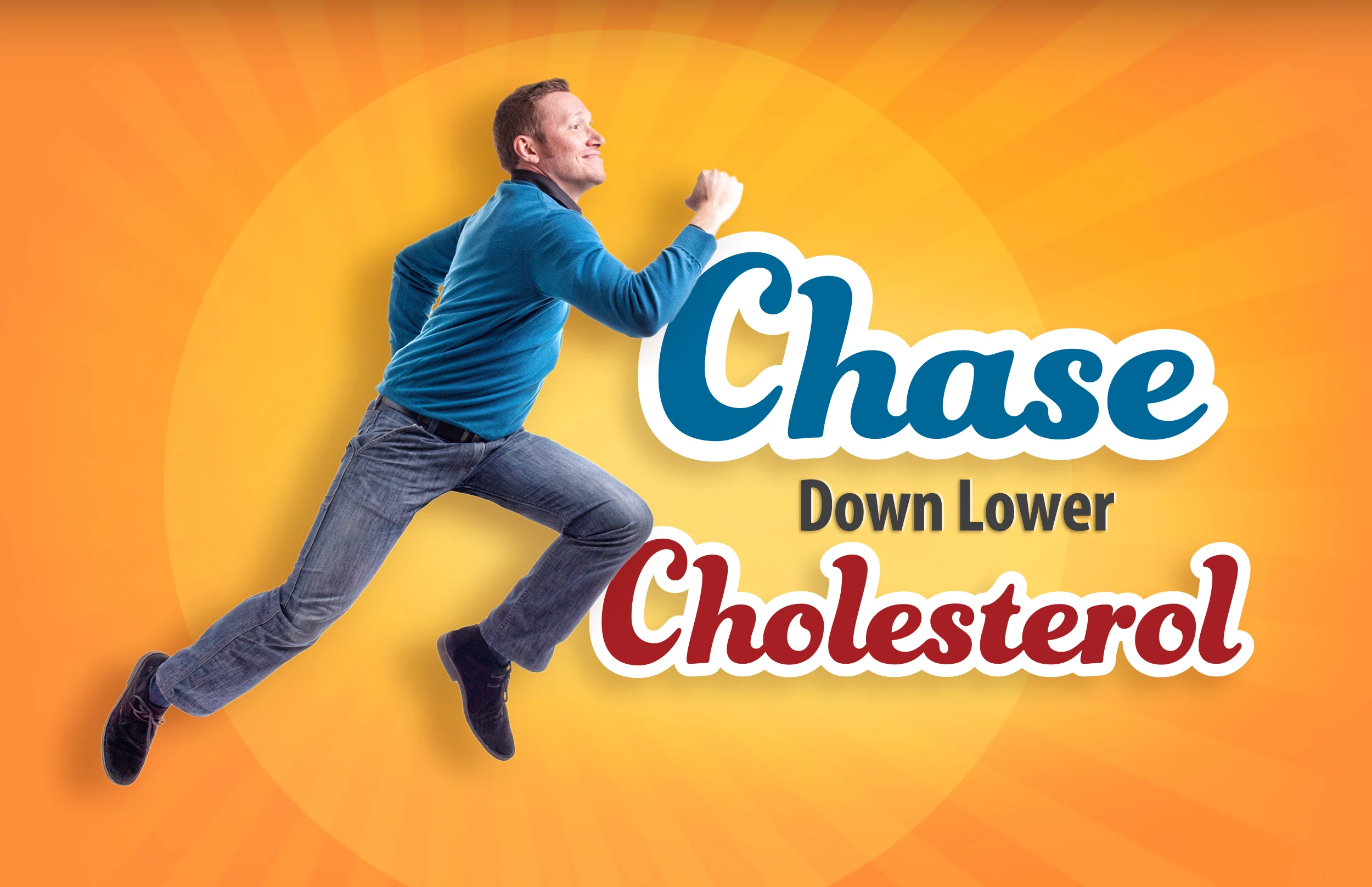
Chase Lower Cholesterol
There are things we want to be high – like our spirits, energy and bank account balances. And despite all the talk of leap year, something we don’t want to jump up is our cholesterol levels.
Cholesterol is a fatty substance found in your blood and produced by your liver. While your body needs it to function properly, too much of it can be harmful.
There are two types of cholesterol – low-density lipoprotein (LDL) and high-density lipoprotein (HDL). LDL cholesterol is often called the “bad” cholesterol because high levels can lead to plaque buildup in your arteries, increasing your risk of heart disease. HDL cholesterol is known as the “good” cholesterol because it helps remove LDL cholesterol from your bloodstream.
And like any nemesis, LDL can be sneaky. In fact, high cholesterol levels may damage your arteries without you knowing it because many people don’t experience any symptoms. The good news is that we’ve already given you some tips to lower your cholesterol. Lifestyle changes, such as quitting smoking, regular exercise and weight loss, can reduce cholesterol levels by up to 10%.
It also may require you to reconsider some of your dietary choices. We get it – it’s hard to resist a good steak, that box of donuts at work or just one more pat of butter. However, these foods are high in saturated fats. You don’t have to give them up completely, but try to keep your saturated fat intake to less than 10% of your daily calories.
Remember, part of leaping toward better heart health is moderation.

One of the key factors in lowering cholesterol is adopting a heart-healthy diet. This means incorporating foods low in saturated fats and high in fiber. Focus on including plenty of fruits, vegetables, whole grains and lean proteins in your meals.

If you have high cholesterol levels or high cholesterol symptoms, such as chest pain, shortness of breath or numbness in your extremities, it may be time to see your doctor. These could be signs of underlying heart disease or other health issues. Your healthcare provider can monitor your cholesterol levels and suggest a treatment plan that may include medications.

Feeling down after an injury or health scare? Don’t give up! Next time, we’ll discuss simple ways to bounce back and build a stronger, healthier heart.